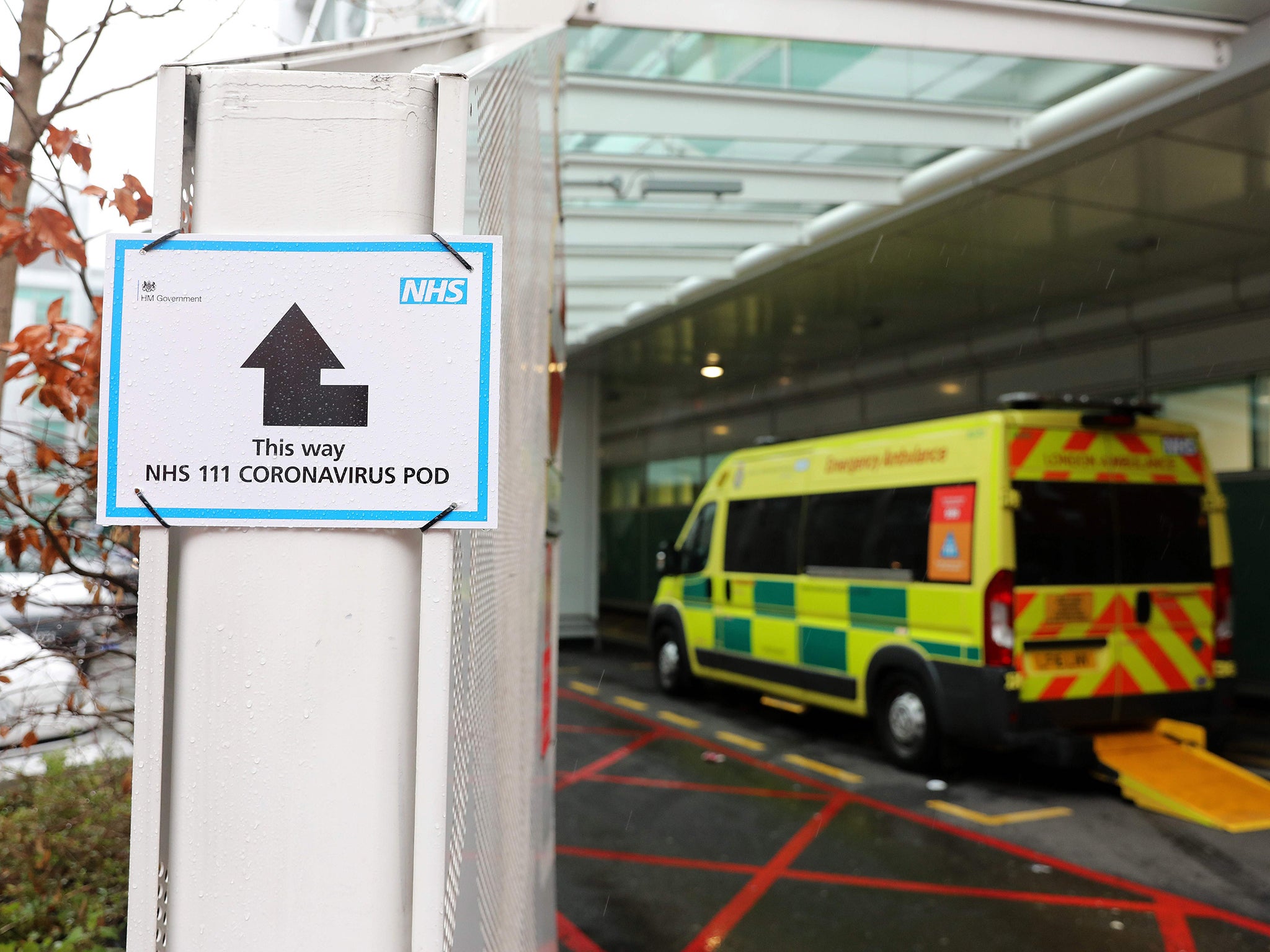Coronavirus: Home Office urged to suspend ‘hostile environment’ amid fears infected migrants won’t seek treatment
Human rights groups warn government attempts to control spread of disease and protect public health are undermined by policies designed to prevent undocumented immigrants from accessing public services

Your support helps us to tell the story
From reproductive rights to climate change to Big Tech, The Independent is on the ground when the story is developing. Whether it's investigating the financials of Elon Musk's pro-Trump PAC or producing our latest documentary, 'The A Word', which shines a light on the American women fighting for reproductive rights, we know how important it is to parse out the facts from the messaging.
At such a critical moment in US history, we need reporters on the ground. Your donation allows us to keep sending journalists to speak to both sides of the story.
The Independent is trusted by Americans across the entire political spectrum. And unlike many other quality news outlets, we choose not to lock Americans out of our reporting and analysis with paywalls. We believe quality journalism should be available to everyone, paid for by those who can afford it.
Your support makes all the difference.The Home Office is being urged to immediately suspend its hostile environment policy over fears it will discourage migrants infected with coronavirus from accessing healthcare, and thus put the wider community at higher risk.
More than 30 human rights organisations are warning that the government’s attempts to control the spread of the disease and protect public health is being undermined by policies designed to prevent undocumented immigrants from accessing public services.
A coalition that includes Liberty, Medact, and the Joint Council for the Welfare of Immigrants (JCWI), is calling for an immediate suspension of all NHS charging and data-sharing between the NHS Trusts and immigration enforcement, so that migrants can access healthcare free from the fear that their details could be handed to the Home Office.
They said failure to do so would be detrimental not only to the health of migrants but also to the wider public.
Under current rules, the NHS can ask the Home Office for information about a patient’s nationality and immigration status in order to decide whether they should be charged for treatment – and the NHS can also pass on personal details to the Home Office.
The government has said that no charges apply to testing for or treating Covid-19, and that no immigration checks are required for overseas visitors that are known to be only undergoing testing or treatment for the disease.
But the charities said there was significant evidence that migrants don’t access healthcare even in instances where exemptions exist for infectious diseases, because the fear of NHS charging and data-sharing between the Home Office is so ingrained.
In a letter to the home secretary, the charities also call for a public information campaign reassuring people it will be safe for them to access care, and for the suspension of “no recourse to public funds” – a measure that prevents people under immigration control from accessing the majority of welfare benefits.
They urge ministers to make provisions to extend or modify visas if necessary and give assurances that migrants unable to attend Home Office appointments will not be penalised.
The letter states: “We are concerned that adequate steps have not been taken to protect migrant populations at risk of Covid-19. Inaction from the government on this issue will worsen a health crisis that requires a truly public health-led response, not a tiered system which serves some and shuts out others.”
Gracie Bradley, Liberty policy and campaigns manager, said that in order to protect public health the government must make sure everyone can seek healthcare when they need it – and that to do this healthcare charges must be scrapped and an immediate data firewall must be implemented between the NHS and immigration enforcement.
“This is a concerning situation, especially for vulnerable communities. We’re particularly worried about those who can’t access essential services either because they’re isolated or because they’re scared to for fear of being shopped to immigration enforcement,” she added.
“Any steps the government takes must be accompanied by an information campaign to reach affected communities so people know they are safe to seek help when they need it.”
Dr Jessica Potter, public health researcher and Medact member, said adding coronavirus to the list of exemptions was “not enough”, adding: “My research shows how the hostile environment, including NHS charging, makes people avoid seeking treatment, even when their condition is exempt.”
Satbir Singh, chief executive of JCWI, said: “The evidence could not be clearer – restricting any group’s access to healthcare is bad not only for their health, but for that of the wider public, too.
“We are only as protected as the least protected among us. In the midst of this unprecedented global health crisis, the government must not only allow, but proactively encourage migrants to seek the healthcare they need.”
A government spokesperson said: “COVID19 has been added to the list of communicable diseases so anyone experiencing symptoms, regardless of their immigration status will be treated for free.”
Join our commenting forum
Join thought-provoking conversations, follow other Independent readers and see their replies
Comments